Pages
- #901 (no title)
- About
- Abstract: An Ontology-driven Architecture
Abstract: The state-of-the-art in Artificial Intelligence (AI),
the Internet, and the computational power reached by current technologies, allow much more advanced thinking about Intel- ligent Tutoring Systems than their original definition. The KE- PLAIR project envisions an online platform, designed to help all players involved in educational endeavors, especially learn- ers, to improve performance and effectiveness of their activities. Using leading edge AI solutions, KEPLAIR will act as a per- sonalized assistant, helping its users in the entire educational experience, from goal elicitation through learning path defini- tion, selection of materials, performance/attainment testing, an- alytics and report building. This paper introduces the architec- ture and functionalities of KEPLAIR as well as illustrating a new methodology for Learning Object (LO) suggestion based on personal profile information. - Abstract: Introducing KEPLAIR Presentation, July 2021
Abstract: The Internet promised to be a boon for learning — a global library of human knowledge that would allow anyone to learn anything. However, very quickly, that resource became a confusing jumble.
How could those of us interested in educational technology improve this situation, bringing the signal out of the noise? We propose using KEPLAIR (Knowledge-based Environment for Personalised Learning using an Artificial Intelligence Recommender), an online platform, currently in initial development, designed to help its users find learning opportunities and materials. Using learning goals chosen by the learner, KEPLAIR will browse the Internet to harvest materials. Then it will filter the result and make recommendations to match the learner’s cognitive level, pre-existing knowledge about the topic, and preferred physical and social environments. Depending on what learners want, KEPLAIR’s recommendations might include a book or video, an online course, a club or community, or even a tutor or learning coach. The intent is not for KEPLAIR to teach, test, or even promote a predetermined curriculum, nor will it require learners to be part of any formal school or learning organisations. KEPLAIR’s purpose is simply to help learners reach their self-chosen goals by highlighting appropriate, attractive, and useful materials so they stand out from the background noise. This will be done in a highly personalised way for each single user, taking into proper account the many aspects involved in recommending, such as needs, background, abilities, aims, interests, tastes, preferences, attitudes, behaviours, motivations, expectations, context, and community.
Obviously, this undertaking poses significant technological, social, and learning challenges. To implement KEPLAIR’s vision, development has begun on an ontology that includes four major learning classes: Goal/Pathway; Learner Profile; Social, Physical, & Digital Environment; and Learning Resource. Based on such an ontology, the AI will draw on semantic analysis of online materials from formal educational institutions, open educational resources (OER), and pre-existing pathways, environments and learning objects. It will engage in conversational dialog with users and user-initiated and user-controlled data uploads to create detailed learner profiles and learning pathways.
This paper will introduce KEPLAIR’s basic structure and mechanisms, offering opportunities to reflect on and respond to the strategies KEPLAIR’s international design team is considering. It will also report on the initial proof-of-concept project currently underway at the University of Bari in Italy.
Return to Related Publications - Abstract:Functionality and Architecture for a Platform for Independent Learners: KEPLAIR – – – – 2022
Abstract: The state-of-the-art in Artificial Intelligence, the Internet, and the computational power reached by the current technologies, allow to think of Intelligent Tutoring Systems much more advanced than their original definition. The KEPLAIR project envisages an online platform, designed to help all players involved in the educational endeavors, especially learners, in improving performance and effectiveness of their activities. Using leading edge AI solutions, KEPLAIR will act as a personalized assistant, helping its users in the entire educational experience, from goal elicitation, to learning path definition, to selection of materials, to performance/attainment testing, to analytics and report building. This paper introduces KEPLAIR’s architecture and functionality, and the role played by AI technologies.
Return to Related Publications - Appointments

KEPLAIR is still gestating.
Please return after its birth in March, 2025
Even after the AI agent, KEPLAIR, is launched it will take time to train it to make successful recommendations for personalized Quests. Please email lizaloop@loopcenter.org if you would like to help train KEPLAIR or discuss its development.
- Audiences
KEPLAIR serves many users:

Learners
Anyone who wants to learn something in any field or activity

Educators
Teachers or coaches who provide personalized activitiesto individuals or groups

Organizations
Institutions and businesses that want to empower learning among their stakeholders

Developers
Technologists and designers who want to join the KEPLAIR’s Consortium

Funders
Financial supporters who want to underwrite the development of KEPLAIR
- Contact
Hello! Thank you for your interest in KEPLAIR. Please send enquiries to:
We are seeking volunteers, technical contributors, writers, learning specialists, and funders at this time. Learners may experience KEPLAIR in simulation but must wait at least a year to try out a working KEPLAIR prototype.
- Cookie Policy (US)
- For Developers

Join our community
KEPLAIR envisions enriching its community of developers and designers so as to finalize and improve the available services. Our current community is made up of professors, experts in education, PhD students and other kinds of students. Visit the contact section to apply.
See also
- For Educators
Help your students become independent, lifelong learners
KEPLAIR is primarily an assistant for learners, designed to support their self-determined goals, activities, and choice in educational materials. It makes autonomous learning accessible, engaging, and intrinsically satisfying. Educators, too, can take advantage of KEPLAIR’s power to facilitate and personalize learning activities for themselves or their students. KEPLAIR engages learners in conversations to help them identify their unique aspirations, interests, and goals. It works with them to design personal pathways and then searches the Internet to discover resources and activities each individual will find to be
- appropriate for their age and previous knowledge
- physically, geographically and economically accessible
- a best fit for their personality and personal preferences
Recommended learning activities may be online or in person. Although the initial version of KEPLAIR will be designed for those 18 or older, its full implementation is planned to serve learners of any age regardless of whether they are in or out of school.

See also
- For Learners

Boost your Value
Learning is part of growth, both personal and career
Why Should You ?

Improve Your Career
There is a constant search for new skills, don’t let them slip away

Learn What Fits You
You are different and we want your personality to emerge

Get Ready For The Travel
We provide you a learning journey in order to discover how you can easily study
- For Organizations

Join our community
KEPLAIR envisions enriching its community of developers and designers so as to finalize and improve the available services. Our current community is made up of professors, experts in education, PhD students and other kinds of students. Visit the contact section to apply.
See also
- Home
- How
What is KEPLAIR made up of?
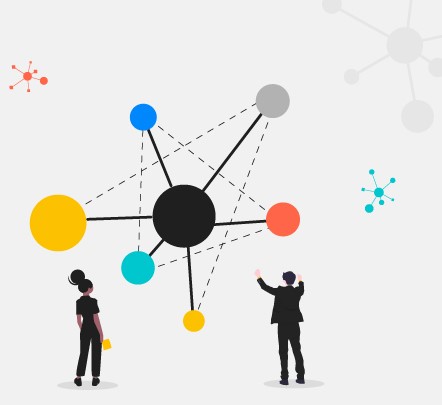
KEPLAIR concepts are stored in an overall ontology
All the useful concepts are collected in an ontology, which defines also attributes and establishes relationships among the concepts. Thanks to this formalization, the reasoning function becomes possible.
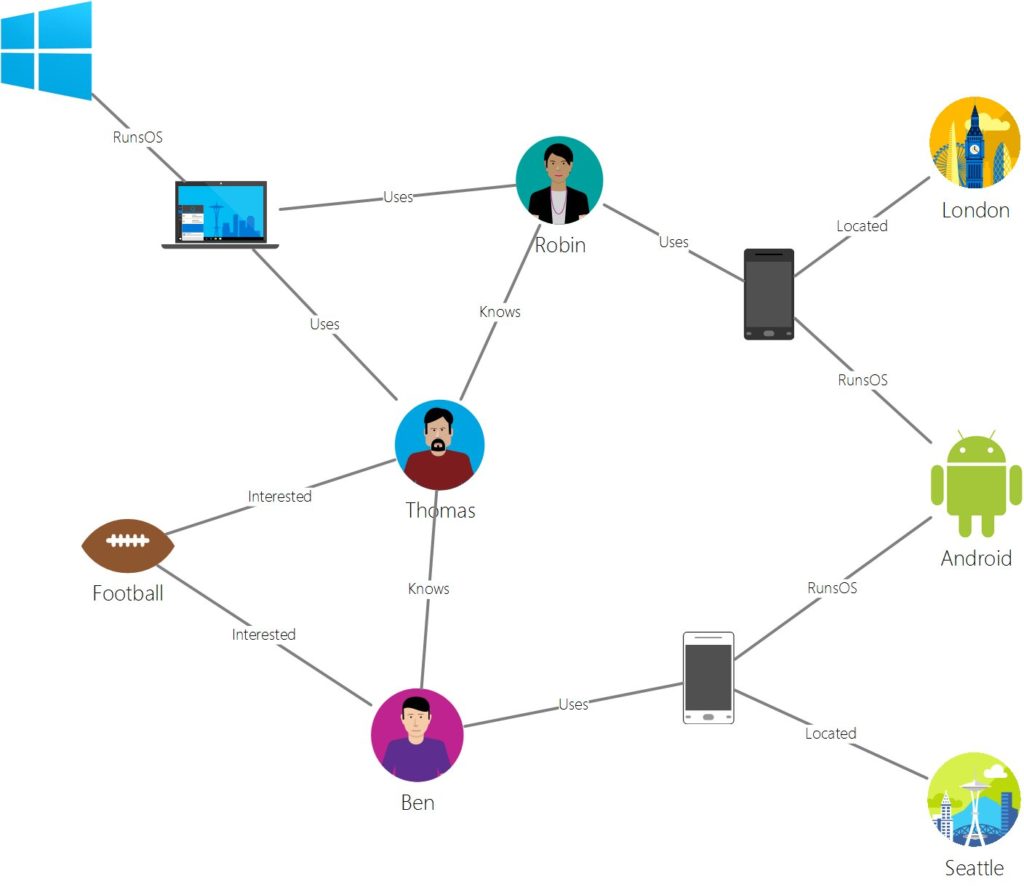
KEPLAIR data must be stored in a graph database
Thanks to their navigability and speed, graph database often suit very well for storing large amount of data. They become very useful especially when combined with formally ontologies. The union of these two two approaches produces an overall value which is greater the sum of the two.

Ontologies and databases can be handled by GraphBRAIN
GraphBRAIN is a general-purpose system aimed at supporting all stages and tasks in the lifecycle of a knowledge base, also providing an online tool for interactive exploitation of its functionalities. Its main peculiarity is the mix of an ontology-based approach with a graph database, so as to take advantage of both the efficiency of the latter and the flexibility and power of the former for storing and handling knowledge.

KEPLAIR is supported by a variegated team
Different roles and responsibilities are present in KEPLAIR: educators, computer scientist, web designers and managers from different parts of the world, collaborating voluntary for a tool which wants to realize the dream of many learners and educators.
- Privacy Policy
Who we are
Our website address is: https://loopcntr.net/keplair.
Comments
When visitors leave comments on the site we collect the data shown in the comments form, and also the visitor’s IP address and browser user agent string to help spam detection.
An anonymized string created from your email address (also called a hash) may be provided to the Gravatar service to see if you are using it. The Gravatar service privacy policy is available here: https://automattic.com/privacy/. After approval of your comment, your profile picture is visible to the public in the context of your comment.
Cookies
If you leave a comment on our site you may opt-in to saving your name, email address and website in cookies. These are for your convenience so that you do not have to fill in your details again when you leave another comment. These cookies will last for one year.
In order to protect against spam bots using our web forms, we have integrated reCAPTCHA v3, subject to the Google Privacy Policy and Terms of Use.
Account holders
If you visit our login page, we will set a temporary cookie to determine if your browser accepts cookies. This cookie contains no personal data and is discarded when you close your browser.
When you log in, we will also set up several cookies to save your login information and your screen display choices. Login cookies last for two days, and screen options cookies last for a year. If you select “Remember Me”, your login will persist for two weeks. If you log out of your account, the login cookies will be removed.
If you edit or publish an article, an additional cookie will be saved in your browser. This cookie includes no personal data and simply indicates the post ID of the article you just edited. It expires after 1 day.
Please refer to further details of our cookies policy.
Embedded content from other websites
Articles on this site may include embedded content (e.g. videos, images, articles, etc.). Embedded content from other websites behaves in the exact same way as if the visitor has visited the other website.
These websites may collect data about you, use cookies, embed additional third-party tracking, and monitor your interaction with that embedded content, including tracking your interaction with the embedded content if you have an account and are logged in to that website.
Who we share your data with
If you have registered in the system and request a password reset, your IP address will be included in the reset email.
How long we retain your data
If you leave a comment, the comment and its metadata are retained indefinitely. This is so we can recognize and approve any follow-up comments automatically instead of holding them in a moderation queue.
For users that register on our website (if any), we also store the personal information they provide in their user profile. All users can see, edit, or delete their personal information at any time (except they cannot change their username). Website administrators can also see and edit that information.
What rights you have over your data
If you have an account on this site, or have left comments, you can request to receive an exported file of the personal data we hold about you, including any data you have provided to us. You can also request that we erase any personal data we hold about you. This does not include any data we are obliged to keep for administrative, legal, or security purposes.
Where we send your data
Visitor comments may be checked through an automated spam detection service in addition to the spam bot detection mentioned above.
- Related Publications
PRESENTATION VIDEOS
JOURNAL ARTICLES
CONFERENCE PAPERS
BOOK CHAPTERSPRESENTATION VIDEOS
JOURNAL ARTICLES
S. Ferilli, D. Redavid, D. Di Pierro, L. Loop
An Ontology-driven Architecture for Intelligent Tutoring Systems with an Application to Learning Object Recommendation.
In International Journal of Computer Information Systems and Industrial Management Applications. ISSN 2150-7988 Volume 14 (2022) pp.297-312
Abstract: The state-of-the-art in Artificial Intelligence (AI),
the Internet, and the computational power reached by current technologies, allow much more advanced thinking about Intelligent Tutoring Systems than their original definition…read more
Full paper: © MIR Labs, www.mirlabs.net/ijcisim/index.htmlCONFERENCE PAPERS
S. Ferilli & L. Loop.
Toward Reasoning-based Recommendation of Library Items – A Case Study on the e-Learning Domain.
In G.M. Di Nunzio, B. Portelli, D. Redavid (Ed.), Proceedings of the
18th Italian Research Conference on Digital Libraries (IRCDL 2022),
Central Europe (CEUR) Workshop Proceedings vol. 3160, ISSN 1613-0073, 12 pp, Padova (blended), Italy, 24-25 February 2022.
DOI ???
S. Ferilli, L. Loop, W. Rankin & P. Trafford.
Introducing KEPLAIR – A Platform for Independent Learners.
In L.G. Chova, A.L. Martinez, I.C. Torres (Eds.), Proceedings of the
13th International Conference on Education and New Learning Technologies (EDULEARN 2021), ISBN 978-84-09-31267-2, ISSN 2340-1117, 9638-9647, Palma, Spain, July 5-6, IATED Academy, 2021.[DOI 10.21125/edulearn.2021.1943]
Abstract: The Internet promised to be a boon for learning — a global library of human knowledge that would allow anyone to learn anything. However, very quickly, that resource became a confusing jumble…
read more
Full paper: http://library.iated.org/view/FERILLI2021INTBOOK CHAPTERS
S. Ferilli, D. Redavid, D. Di Pierro & L. Loop.
Functionality and Architecture for a Platform for Independent Learners: KEPLAIR.
In A. Abraham, N. Gandhi, T. Hanne, T.-P. Hong, T. Nogueira Rios and W. Ding (Eds.) Intelligent Systems Design and Applications, Lecture Notes in Networks and Systems 418, ISBN 978-3-030-96307-1, e-ISBN 978-3-030-96308-8, ISSN 1865-0929, e-ISSN 2367-3370, 795-805, Springer, 2022.
DOI 10.1007/978-3-030-96308-8_74
Abstract: Functionality and Architecture…read more
Full paper: https://link.springer.com/10.1007/978-3-030-96308-8_74 - Site Map
- Sitemap
- Test Page
Don’t use this page except for testing. Editining for fun
- The KEPLAIR Blog
- What
The KEPLAIR Vision
KEPLAIR is a web-based service that recommends educational experiences to people who want to take charge of their own learning – to go on their own learning journey.
KEPLAIR functions as an artificially intelligent coach, researcher, counselor, and wizardly computer program which collaborates with you to develop your goals and to define pathways to reach them.
KEPLAIR search strategies enable it to find activities that are likely to delight you while advancing you toward your self-chosen goals. This approach makes learning fun, easy, fascinating and socially comfortable. KEPLAIR recommends things to read and do, games and exercises to grow your skills, people online or near you who can help you get where you want to go, classes and courses to take, clubs and recreational groups where you can find people who share common interests and help you learn.
KEPLAIR puts you, the learner, in charge.
Find out about KEPLAIR for Teachers and Educators
Get involved with KEPLAIR Research and Development
Plan to bring KEPLAIR to your Stakeholders

Developed by the KEPLAIR Consortium, a joint project of LO*OP Center, Inc. (USA) and University of Bari (Italy)
Learning support for everyone, everyday, everywhere
- What for Educators

Grown your own students
KEPLAIR is an educational assistant aiming at making autonomous learning accessible and engaging. Nonetheless, educators can take advantage of this to facilitate and personalise learning for each of their learners. The combination of an online tutoring system and a direct educator will provide the learner with the right mix of autonomous and controlled learning, which is useful in cases when the learner got to learn a specific topic but, still, needs personal pathways and is free to choose the best way to study.
See also
- What for Educators
- When

Steps to Launch KEPLAIR
The founders of KEPLAIR are on a journey to get from the original vision to a free, global, internet service that supports learning for everyone. Here are the Phases we expect to go through.

Idea Phase
Developing the Vision
– 2019 through 2021 –
Feasibility Phase
Identifying needed resources, processes, end-users, team members, and other stakeholders
– July, 2021 through September, 2022 –
Planning Phase
Documenting existing resources and those needing development, launching KEPLAIR Consortium
– May through December, 2022 –
Development Phase
Building user interfaces, customized search functions, and AI recommendation software
Growing collaboration within KEPLAIR Consortium
– 2022 though 2024 –
Launch of Operations
The first launch will be a Proof of Concept version of KEPLAIR for a limited set of learners with well-defined goals
– January, 2023 –Sponsor affiliated users, sustaining services, and continuous improvement functions
– Beginning January, 2024 –
Staged Development
The third stage launch will happen as the service is built out for learners everywhere. The final payload will go into orbit for general users after interfaces have been fully tested and when the underlying AI is mature enough to successfully recommend learning experiences to widely diverse learners around the world.
– Anticipated January 2025 – - Where
KEPLAIR is a joint project of members of
the KEPLAIR ConsortiumCurrent members are located in multiple countries around the world:
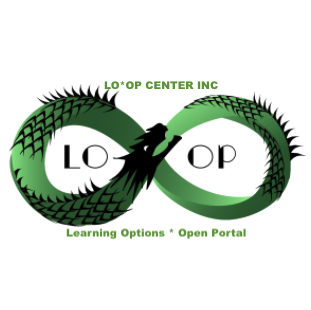
USA
LO*OP Center, Inc. (Learning Options * Open Portal) is a US federally tax exempt nonprofit corporation authorized by the State of California. Its Specific and primary purposes are:
(1) To create, establish, and provide an independent nonprofit resource for the advancement of education and science.
(2) To operate a center at which the general publi.c may
obtain access to computers and other educational resources.(3) To develop, test, and promote techniques of learning and teaching
(4) To publish and distribute materials related to the L0*0P Center’s activities.
(5) To aid other organizations in the development and implementation of educational techniques or materials on a contract or consultant basis.
website: loopcenter.org

Italy
Università degli Studi di Bari is an Italian university located in Apulia, in the southern Italy. The department of Computer Science is employed in this project.
website: https://www.uniba.it
- Who
Who is KEPLAIR for? (click here)
Who is building KEPLAIR? (scroll down)

The People behind KEPLAIR
The KEPLAIR Consortium is a group of individuals, academic research laboratories, institutes, commercial firms, professional associations, and other consortia who have come together to build KEPLAIR.
The Consortium is managed by a Core Team with the assistance of an Administrative Team and an Advisory Group who recruit new Consortium members, coordinate the efforts of various research and development teams.Meet the Core Team
The Researchers

Davide Di Pierro
PhD student in Artificial Intelligence
University of Bari, Italy
KEPLAIR Advisory Team
coming soon…
Emeritus Team Members
Other Contributors
coming soon…
- Paul Trafford

Paul takes a holistic view of people, systems and technology, based on intuition and internal investigations of mind. Or, put another way, for him it is the ‘learning of the heart’ (Pali: citta) which really matters. Perhaps paradoxically, this has led to his postgraduate degrees in the intellectual disciplines of mathematics, computer science and religious studies. As a result, the intuitive and analytical are integrated as he conducts inter-disciplinary and integrative approaches to theory and practice.
Paul is aided by a natural facility to deal with diversity, being mixed-race and having dual religious belonging – his father is English and Roman Catholic whilst his late mother was from Thailand and Buddhist. He has formally nurtured the intercultural and interreligious background in interfaith dialogue since the 1980s; he has participated in many voluntary initiatives from local dialogue groups to consultancy for international NGOs; he was Trustee of the International Interfaith Centre in Oxford from 2000 to 2002.
Paul’s research currently concerns ethical approaches around intention and agency with respect to the design and use of advanced technologies. For LearningQuest, he is looking especially at the qualitative aspects of learning, i.e., how to support the development of a learner’s noble qualities in order to make wise decisions, for long-term well-being and benefit to society. His approach is outlined in his short book, Buddhism and Computing: How to Flourish in the Age of Algorithms (Mud Pie Books), as introduced in The Daily Alternative.
The discussion ranges from reflections on the nature of human thought and intelligence to a concise exposition of novel approaches to the design of social networking sites. This theme was introduced especially for the educational context in an Educause blog post and subsequently expanded upon at a conference on Buddhism and science. The book also illustrates how Harvard University’s Thinking Routines from Project Zero can be applied to improve the quality of attention, as described in a blog post. He hopes to bring these to fruition in the Sigala project.
Paul has engaged in e-learning in various technical capacities, notably at Oxford University Computing Services (2000-2008), first in the Humanities Computing Unit under Lou Burnard and then the Learning Technologies Group under Stuart Lee. Working closely with academics, he developed bespoke web applications such as language-learning and teaching resource content management systems (among various forays into the read/write Web). He became heavily involved in the entire lifecycle of WebLearn, the University’s first centrally-hosted Virtual Learning Environment (VLE) – from procurement in 2001/2 (Bodington was selected as the underlying system) through to business as usual; he was responsible for the operational management from 2003 until he moved on in 2008 to return to full-time studies. He later co-authored with Yukari Shirota, an introduction to VLEs, which led on to collaborative research on teaching mathematical concepts.
Parallel to his development and system administration roles, Paul initiated research in mobile and ubiquitous learning, probing technologies for their capabilities and potential. He became Principal Investigator for the JISC-funded RAMBLE project (2004-5) in mobile blogging. This demonstrated how handheld devices (PDAs.) serving as personal reflective diaries could also be connected through service-oriented architectures with institutional e-learning platforms. See Mobile Blogs, Personal Reflections and Learning Environments, which appeared in the Ariadne journal.
Whilst ostensibly a technical project, the most valuable insight to emerge was that the quality of learner reflection deepened through a certain combination of factors: a light and portable device with a nice foldaway keyboard; very simple software and user interface; gentle, non-prescriptive guidance; and, perhaps most important of all, the PDAs used were only connected to the Internet when tethered to laptops or desktop PCs. This combination allowed the student to relax, feel at ease, and immerse themselves in their diaries. Not only was the basic lecture feedback delivered, but unanticipated reflections were offered that addressed wider learning issues.
As RAMBLE drew attention to learner-directed use of handheld technologies, Paul started to explore the wider potential of and requirements for pervasive learning (in three parts). There are similarities to the vision expressed by Alan Kay in A Personal Computer for Children of All Ages, albeit for a smaller device and largely inspired here by John Rose, who set up Daily Info and also established Oxford’s first drop-in computer centre.
After unilaterally composing a mobile strategy document for the University, in 2007/8 Paul set up and co-ordinated the Mobile Special Interest Group (SIG) at Oxford University Computing Services. With representation from every group in the department, it became the vehicle for subsequent initiatives such as Erewhon (for which he was a member of the Advisory Committee) and thence Mobile Oxford. Around the same time, he set up and co-ordinated a regular meditation group at the department, well before the University was offering mindfulness courses to staff.
More recently, he has worked on various digital and IT projects for the History of Science Museum, Oxford (2009-2012, 2014-2020) and the Qatar Museums Authority in Doha (2012-2014). He is presently HSM Honorary Research Fellow, particularly interested in how museums can feature as exemplars of KEPLAIR recommendations, as they bridge formal and informal spaces.
Further links
Academia: https://paultrafford.academia.edu/
LinkedIn: https://linkedin.com/in/paultrafford/
- Paul Trafford
- Who-edit
Many people, associated with various organizations, collaborate to create KEPLAIR. This page will highlight the original Core Team as well as contributors across the globe.
CORE TEAM
TEAM
ADVISORS
EMERITUS MEMBERS
CONTRIBUTORS
RESEARCH GROUPS (?)Meet the Core Team
Team Members
Michele Perniola
System Administrator
Domenico Redavid
KEPLAIR Advisors
coming soon…
Emeritus Team Members
Bill Rankin
2020-2021
Renaissance Man
Social Context of Learning
unfold learningPaul Trafford
2020-2021
Keeper of Many Faiths
Ubiquitous Learning Design
more about Paul
Other Contributors
coming soon…
Research Groups

LO*OP Center
Guerneville, California, USA
https://loopcenter.org/ - Why
Because not all learners are the same. KEPLAIR goes beyond the conventional teacher-centered classroom to enable all learners to take charge of their own personal learning journeys. It supports:
Independent Study
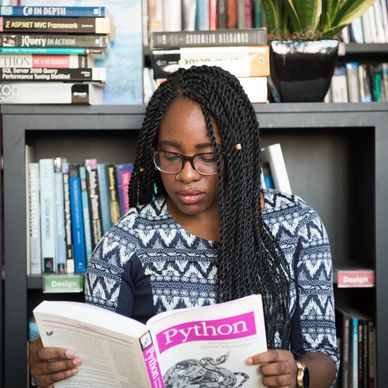
Many of us choose our own subjects and pursue them without teachers or classrooms. KEPLAIR helps you locate what you need to meet your objectives. Recreational Learning

Even if we’re just having fun we may seek out learning resources to expand our horizons. With KEPLAIR, you set the goals and curriculum. Wider Opportunities

Home and family obligations may make it impossible to attend school. KEPLAIR helps you find learning materials and bring them home. Divergent Interests

Perhaps we can’t find anything to be passionate about in our age-graded school curricula. KEPLAIR brings the world to your personal classroom. Varied Environments

We may be super smart and still find it impossible to learn while seated at a desk. KEPLAIR matches the learning environment to your specifications. Materials for Self-Organized Schools

When formal education isn’t provided to us we need a way to enhance learning for ourselves and those around us. KEPLAIR goes beyond the schoolhouse. Going Beyond the Establishment
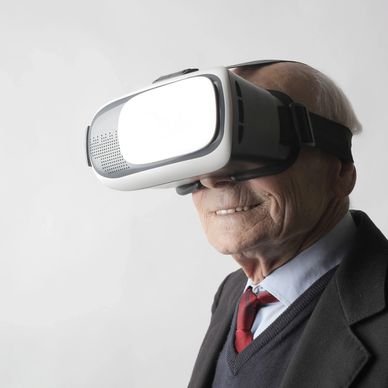
Not everything we want to learn is part of the existing curriculum. KEPLAIR finds the right learning resources for your goals and needs. Parent-Managed Teaching

Homeschooling, lack of schools, and school closures make access to appropriate learning materials essential. Spontaneous Learning Happening Here

Sometimes we don’t know what learning is going on…KEPLAIR doesn’t tell you what you should learn, it asks what you want to learn. Is KEPLAIR for me?
Yes. Your learning pathway should be as unique as you are. Tell us about the journeys you would like to undertake and we’ll build KEPLAIR to help you on your way.
We want to train KEPLAIR to meet your needs to learn in your own way. Let us know if you are willing to lend a hand.

What will you choose to learn?


A KEPLAIR Learning Journey begins with a pathway
Your pathway to your goal is unique, as is the goal you choose to aim at. You may decide to follow in another’s footsteps or to break new ground. Your goal may be clearly defined or just a blurry direction. KEPLAIR helps you find your way using the data you supply through the “goals-paths-objectives“ natural language dialogues at the top of the design pyramid above.
Your Learning Journey depends on who you are
What you already know, where you’ve been, your strengths, limitations, accomplishments and preferences are what make up your personal “learner’s profile”. By putting detailed information in your profile you enable KEPLAIR to recommend an individual path made up of curated learning experiences.


You will use many tools to learn
Equipment and toys, online and paper printed texts, video and live performances, structured classes and courses, clubs and recreational space – – these are all “learning objects”, resources we employ. KEPLAIR helps you identify the right tools at the right point on your path and brings them within reach. You can explore each one, accept what delights you, master those that engage and challenge you, or reject any that don’t suit you. KEPLAIR helps you sort through the noise.
You are always someplace, alone or with someone
Because we humans have physical bodies along with minds, we learn in a place, at a time, in a social context. To recommend an educational experience, KEPLAIR matches the characteristics and preferences in your profile together with accessible materials and “appropriate environments” to offer a path you will find amusing, enjoyable, satisfying, challenging and in direct line with your goal.





